16 Results
Daily Statin Reduces Heart Disease Risk Among Adults Living with HIV
July 24, 2023
A National Institutes of Health-supported study found that statins, a class of cholesterol-lowering medications, may offset the high risk of cardiovascular disease in people living with HIV by more than a third, potentially preventing one in five major cardiovascular events or premature deaths in this population. People living with HIV can have a 50-100% increased risk for cardiovascular disease.
NIH Research Identifies Opportunities to Improve Future HIV Vaccine Candidates
December 14, 2023
An effective HIV vaccine may need to prompt strong responses from immune cells called CD8+ T cells to protect people from acquiring HIV, according to a new study from researchers at the National Institute of Allergy and Infectious Diseases (NIAID), part of the National Institutes of Health, and colleagues. The study findings, appearing in Science, draw comparisons between the immune system activity of past HIV vaccine study participants and people with HIV who naturally keep the virus from replicating even in the absence of antiretroviral therapy (ART).
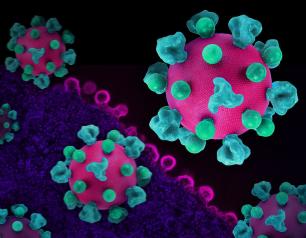
Experimental HIV Vaccine Regimen Safe but Ineffective, NIH Study Finds
January 18, 2023
An investigational HIV vaccine regimen tested among men who have sex with men (MSM) and transgender people was safe but did not provide protection against HIV acquisition, an independent data and safety monitoring board (DSMB) has determined. The HPX3002/HVTN 706, or “Mosaico,” Phase 3 clinical trial began in 2019 and involved 3,900 volunteers ages 18 to 60 years in Europe, North America and South America.
Clinical Trial of HIV Vaccine Begins in United States and South Africa
September 20, 2023
A trial of a preventive HIV vaccine candidate has begun enrollment in the United States and South Africa. The Phase 1 trial will evaluate a novel vaccine known as VIR-1388 for its safety and ability to induce an HIV-specific immune response in people. The National Institute of Allergy and Infectious Diseases (NIAID), part of the National Institutes of Health, has provided scientific and financial support throughout the lifecycle of this HIV vaccine concept and is contributing funding for this study.
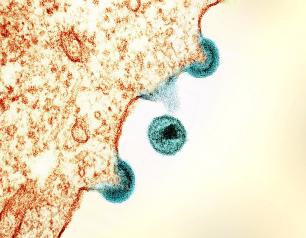
Daily Statin Reduces the Risk of Cardiovascular Disease in People Living with HIV, Large NIH Study Finds
April 11, 2023
A National Institutes of Health (NIH) clinical trial was stopped early because a daily statin medication was found to reduce the increased risk of cardiovascular disease among people living with HIV in the first large-scale clinical study to test a primary cardiovascular prevention strategy in this population.
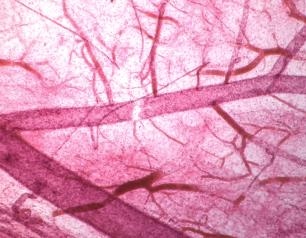
NIH Statement on HIV Vaccine Awareness Day 2023
May 18, 2023
Today marks the 26th observance of HIV Vaccine Awareness Day. The National Institutes of Health applauds the efforts of the collaborative global community of scientists, advocates, study participants, study staff, and funders enabling unprecedented levels of innovation and adaptation in the pursuit of a highly effective HIV vaccine.

World AIDS Day 2023
December 1, 2023
On this 35th World AIDS Day, the National Institutes of Health (NIH) joins its partners in honoring the lives lost due to the HIV pandemic. For decades, this virus has exacted a tragic toll, affecting people, families, and communities worldwide, threatening social and economic development, and exacerbating stigma, often toward people who already experience discrimination and health disparities.
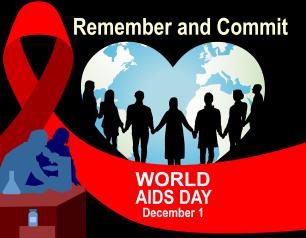
NIH Clinical Trial of Tuberculous Meningitis Drug Regimen Begins
December 7, 2023
A trial of a new drug regimen to treat tuberculous meningitis (TBM) has started enrolling adults and adolescents in several countries where tuberculosis (TB) is prevalent. The trial will include 330 participants aged 15 years and older who have or are likely to have TBM based on signs and symptoms, including people living with and without HIV. Because pregnant women are eligible to enroll in this study with appropriate consent, a small number of pregnant women are expected to be included.
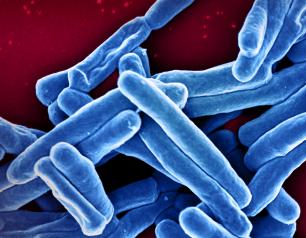
NIH-Funded Study Finds Doxycycline Reduces Sexually Transmitted Infections by Two-Thirds
April 6, 2023
The oral antibiotic doxycycline prevented the acquisition of sexually transmitted infections (STIs) when tested among study participants who took the medication within 72 hours of having condomless sex. The post-exposure approach, termed doxy-PEP, resulted in a two-thirds reduction in the incidence of syphilis, gonorrhea, and chlamydia among the study participants.
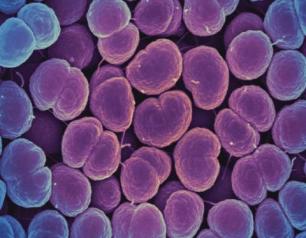
Biomedical STI Prevention Evidence Is Inadequate for Cisgender Women
December 20, 2023
Pivotal studies of some biomedical HIV and sexually transmitted infection (STI) prevention interventions have excluded cisgender women or demonstrated low efficacy among them, limiting their prevention options relative to other populations who experience high HIV and STI incidence. Findings show doxycycline postexposure prophylaxis (better known as DoxyPEP) did not prevent STI acquisition in cisgender women, despite showing promising results in gay, bisexual, and other men who have sex with men and transgender women in a previous study.
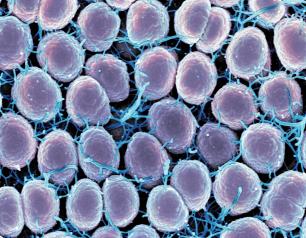
NIH Researchers Uncover New Details on Rare Immune Disease
May 3, 2023
In an 11-year study, researchers at the National Institutes of Health have further characterized idiopathic CD4 lymphocytopenia (ICL), a rare immune deficiency that leaves people vulnerable to infectious diseases, autoimmune diseases and cancers. Researchers observed that people with the most severe cases of ICL had the highest risk of acquiring or developing several of the diseases associated with this immune deficiency. This study, published in the New England Journal of Medicine, was led by Irini Sereti M.D., M.H.S. and Andrea Lisco, M.D., Ph.D.
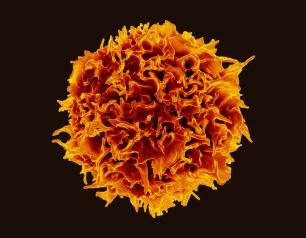
NIH Selects Dr. Jeanne Marrazzo as Director of the National Institute of Allergy and Infectious Diseases
August 2, 2023
Lawrence A. Tabak, D.D.S., Ph.D., acting director for the National Institutes of Health (NIH), has named Jeanne M. Marrazzo, M.D., as director of NIH’s National Institute of Allergy and Infectious Diseases (NIAID).

Investigational Three-Month TB Regimen Is Safe but Ineffective, NIH Study Finds
July 5, 2023
The first clinical trial of a three-month tuberculosis (TB) treatment regimen is closing enrollment because of a high rate of unfavorable outcomes with the investigational course of treatment. Advancing Clinical Therapeutics Globally for HIV/AIDS and Other Infections (ACTG) 5362, also known as the CLO-FAST trial, sought to evaluate the safety and efficacy of a three-month clofazimine- and high-dose rifapentine-containing regimen. An interim data analysis showed that participants taking the investigational regimen experienced ongoing or recurring TB at rates above thresholds set in the study protocol.
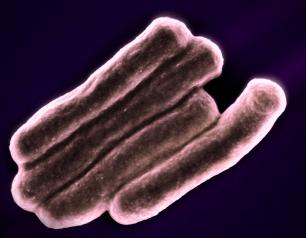
SARS-CoV-2 Infection Weakens Immune-Cell Response to Vaccination
March 20, 2023
The magnitude and quality of a key immune cell’s response to vaccination with two doses of the Pfizer-BioNTech COVID-19 vaccine were considerably lower in people with prior SARS-CoV-2 infection compared to people without prior infection, a study has found. In addition, the level of this key immune cell that targets the SARS-CoV-2 spike protein was substantially lower in unvaccinated people with COVID-19 than in vaccinated people who had never been infected. Importantly, people who recover from SARS-CoV-2 infection and then get vaccinated are more protected than people who are unvaccinated.

NIAID Appoints Ted Pierson as New Vaccine Research Center Director
April 25, 2023
The National Institute of Allergy and Infectious Diseases (NIAID), part of the National Institutes of Health, has named Theodore (Ted) C. Pierson, Ph.D., as the new director of its Dale and Betty Bumpers Vaccine Research Center (VRC) in Bethesda, MD.

World TB Day 2023 – ‘Yes! We Can End TB!’
March 24, 2023
Each year, on March 24, the National Institute of Allergy and Infectious Diseases (NIAID), part of the NIH, joins people and organizations from around the globe in marking World Tuberculosis Day. On this day, more than 140 years ago, Dr. Robert Koch announced his discovery that most human tuberculosis (TB) is caused by the bacterium Mycobacterium tuberculosis (Mtb). Although our scientific insight into this disease has grown over the past century, TB is still one of the deadliest infectious diseases on the planet. Today, NIAID joins the world in a message of hope: “Yes!

